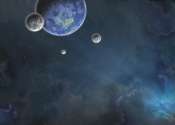The first habitable-zone, Earth-sized planet discovered with exoplanet survey spacecraft
TESS, the Transiting Exoplanet Survey Satellite, was launched in 2018 with the goal of discovering small planets around the Sun's nearest neighbors, stars bright enough to allow for follow-up characterizations of their planets' ...









